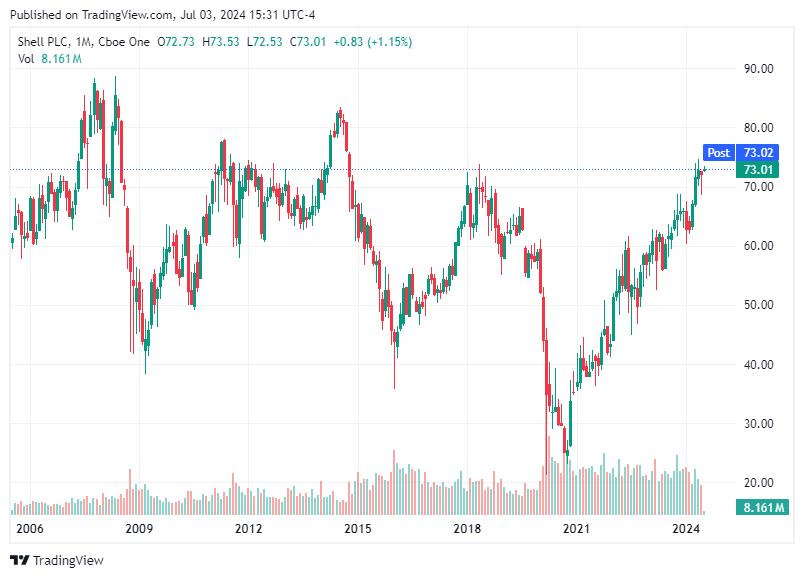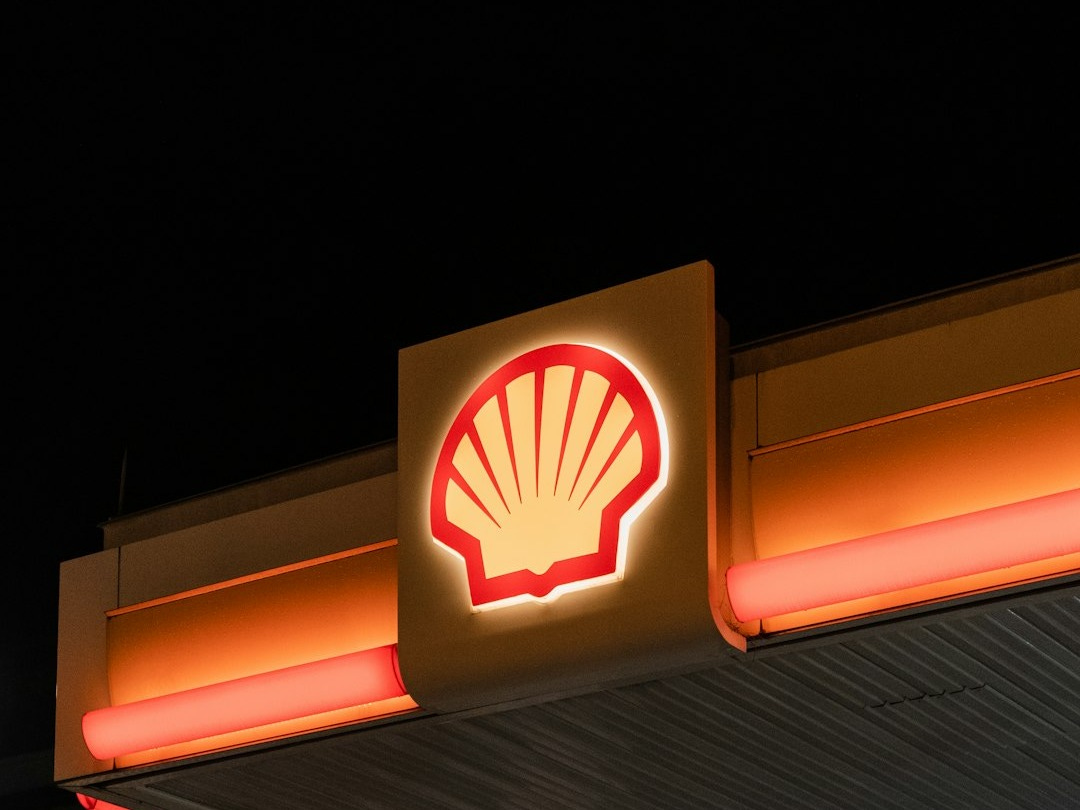Shell Shuts Down Biofuels Facility Construction Over European Market
Shell Halts Biofuels Facility Construction Amid European Market Slowdown.

Disclaimer: The following article provides a comprehensive analysis of Shell's decision to pause the construction of its biofuels facility in Rotterdam. The information presented is for educational purposes only and should not be interpreted as investment advice or an endorsement of any specific company or product.
Real-time information is available daily at https://stockregion.net
Shell, one of the world's largest energy conglomerates, has announced a temporary halt on the construction of its biofuels facility in Rotterdam, Netherlands. This decision comes as the company grapples with a faltering European market and the imperative to optimize costs while ensuring competitive returns for investors. This article delves into the reasons behind this strategic move, its implications, and Shell's broader strategy within the context of the global energy transition.
In September 2021, Shell made a final investment decision to build an 820,000 tonnes per year biofuels facility at the Shell Energy and Chemicals Park Rotterdam. This facility was designed to produce sustainable aviation fuel (SAF) and renewable diesel derived from waste materials. The project was a significant step in Shell's journey toward achieving net-zero emissions by 2050, aligning with the company's commitment to developing low-carbon fuels as part of its broader decarbonization strategy. The European biofuels market has been experiencing a slowdown, influenced by various factors including fluctuating oil prices, regulatory uncertainties, and slower-than-expected adoption of biofuels. These market conditions have posed challenges to the financial viability and timely delivery of the Rotterdam biofuels project. As a result, Shell has opted to reassess the project's execution to better align with the current market environment.
Amidst these market challenges, Shell remains focused on controlling costs and optimizing investor returns. The decision to pause construction is seen as a prudent measure to evaluate more cost-effective methods of continuing the project. By slowing down on-site activity and reducing contractor numbers, Shell aims to streamline project sequencing, control costs, and ultimately enhance the project's long-term competitiveness.
Huibert Vigeveno, Shell's Downstream, Renewables, and Energy Solutions Director, emphasized the importance of this strategic pause. He stated, “Temporarily pausing on-site construction now will allow us to assess the most commercial way forward for the project.” Vigeveno reaffirmed Shell's commitment to its net-zero emissions target by 2050, highlighting that low-carbon fuels remain a key component of the company's strategy to help both Shell and its customers profitably decarbonize. He further assured stakeholders that Shell would continue to use shareholder capital in a measured and disciplined manner, focusing on delivering more value with fewer emissions.
The Construction Pause
The immediate implication of the construction pause will be a reduction in the number of contractors on site and a slowdown in construction activities. This measure is intended to control costs and optimize the sequencing of the project. While this may lead to temporary disruptions, it is expected to provide Shell with the necessary breathing space to re-strategize and ensure the project's long-term success. By pausing construction, Shell aims to reexamine the project's delivery schedule and competitive positioning. This approach will enable the company to make necessary adjustments in response to the evolving market landscape. The pause will serve as an opportunity to reassess and refine the project's commercial strategy, ensuring that it remains competitive and financially viable in the long run. Following the decision to pause on-site construction, an impairment review will be conducted for the Rotterdam biofuels project. This review is intended to assess the financial impact of the construction pause and provide guidance on future project timelines and status. Details of this review will be included in Shell’s second quarter update note, scheduled for publication on July 5, 2024.
Shell's decision to pause the Rotterdam biofuels facility construction is consistent with its broader investment strategy, which emphasizes disciplined capital allocation and a focus on low-carbon energy solutions. As announced during Shell's Capital Markets Day in June 2023, the company plans to invest $10-$15 billion across 2023-2025 to support the development of e-mobility, low-carbon fuels, renewable power generation, hydrogen, and carbon capture and storage. These investments reflect Shell's commitment to transitioning to a low-carbon energy portfolio while delivering value to shareholders.
Despite the temporary construction pause, Shell remains steadfast in its commitment to low-carbon fuels. The Rotterdam biofuels facility is designed to play a crucial role in Shell's strategy to produce sustainable aviation fuel and renewable diesel. These low-carbon fuels are essential for reducing greenhouse gas emissions in the transportation sector, particularly in aviation, which is one of the hardest sectors to decarbonize.
Shell's Global Biofuels Operations
Shell is already a major player in the global biofuels market through its Raizen joint venture in Brazil. Raizen is the largest producer of second-generation ethanol and the leading sugarcane ethanol producer globally. This joint venture underscores Shell's capability and expertise in producing biofuels at scale, contributing to its overarching goal of providing sustainable energy solutions worldwide. While the exact timeline for resuming construction at the Rotterdam biofuels facility remains uncertain, Shell has indicated that additional information regarding the project's status and timelines will be communicated in future updates. The company is expected to continue closely monitoring market conditions and make strategic decisions based on its reassessment of the project’s commercial viability.
Shell's long-term vision remains centered on achieving net-zero emissions by 2050. Low-carbon fuels, including those produced at the Rotterdam biofuels facility, are integral to this vision. The company’s ongoing investments in renewable energy, hydrogen, and carbon capture and storage further illustrate its commitment to leading the global energy transition.
Shell's decision to temporarily pause the construction of its biofuels facility in Rotterdam reflects a strategic response to current market conditions and a commitment to disciplined capital allocation. The pause allows Shell to reassess the project’s commercial viability, control costs, and optimize its competitive positioning. Despite this temporary setback, Shell remains dedicated to its long-term goal of achieving net-zero emissions by 2050 and continues to invest in low-carbon energy solutions. The outcome of the impairment review and future updates will provide further clarity on the project's status and the company’s strategic direction in the evolving energy landscape.
Disclaimer: The information provided in this article is for educational purposes only and should not be construed as investment advice or an endorsement of any specific company or product.
Real-time information is available daily at https://stockregion.net


